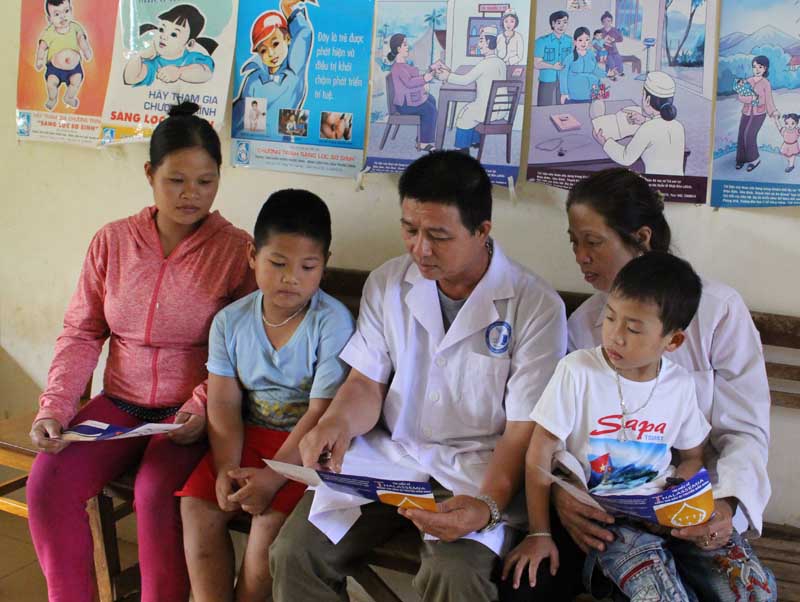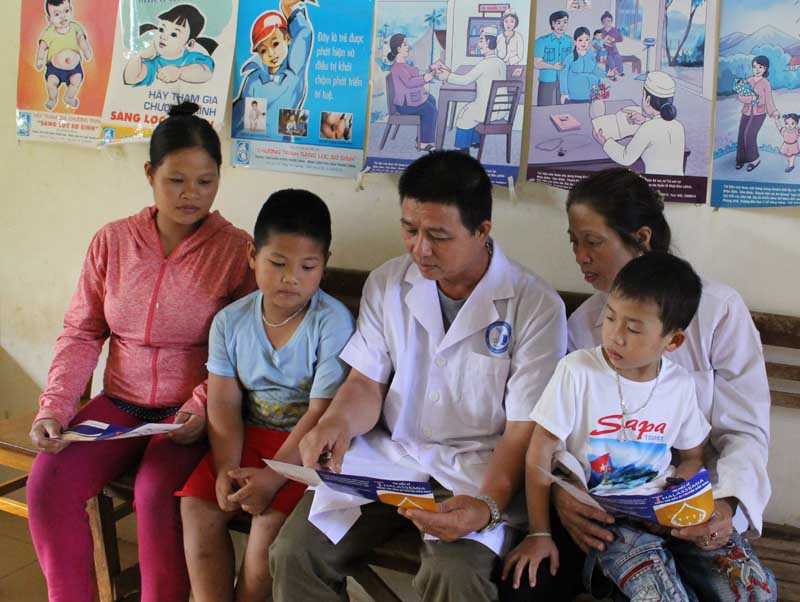



The
population staff of Yen Thuong Commune (Cao Phong) propagates the importance of
prenatal and neonatal screening for the local people.
Over the past
time, although the authority of Yen Thuong commune has implemented many
solutions to improve the quality of population such as promoting propaganda and
communication to people in order to change awareness and behavior in the
implementation of population policies. The commune population staff worked
closely with 13 population collaborators to propagate once a month at the
village meeting. The commune set up four pre-marital clubs led by the secretary
of the Youth Union of the hamlets in order to provide counseling on marriage
knowledge and safe contraception. However, the quality of population in Yen
Thuong commune is still facing many difficulties.
The rate of
third birth in the commune tends to increase. In 2016, 2017 the commune had one
third child case. In the first nine months of 2018, there were 4 cases of
having the third child. To explain this, Mr. Bui Van Tinh, the Commune People's
Commissar, said: The cases of having a third child are mainly in the poor
households with difficult economic life and low educational level. In the first
nine months, the rate of using modern contraceptive methods in Yen Thuong
commune was only 75.6%”. The third child birth is mainly happened in the poor
family, the family does not have the conditions to care and educate, which will
greatly affect the development of young children.
At present,
the worrying factor affecting the quality of population in Yen Thuong commune
is the pre-natal screening rate of pregnant women is 0%. Pre-natal and neonatal
screening is performed for pregnant women in the first trimester, mid-months
and within the first month after birth to detect early fetal and neonatal
atrophy children with congenital malformations, neural tube defects, down
syndrome. However, in Yen Thuong, due to economic difficulties and unawareness
of the importance of these problems, pregnant women do not perform prenatal and
neonatal screening at medical facilities. The number of pregnant women only
attending at the commune antenatal clinics is 81% and 100% of having Tetanus
injection.